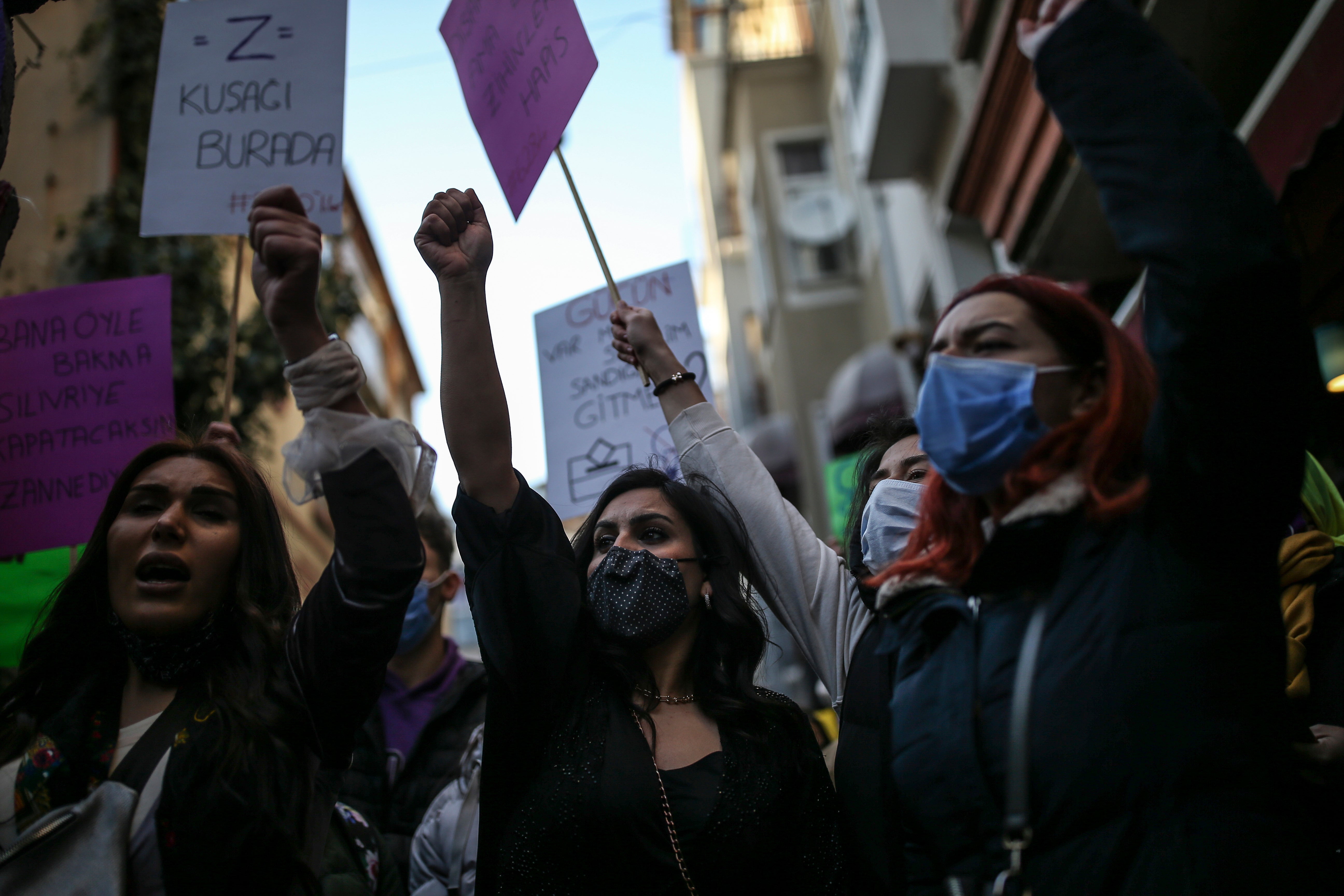Turkey withdraws from European treaty protecting women
Turkey has withdrawn from a European treaty protecting women from violence that it was the first to sign 10 years ago and that bears the name of its largest city

Your support helps us to tell the story
From reproductive rights to climate change to Big Tech, The Independent is on the ground when the story is developing. Whether it's investigating the financials of Elon Musk's pro-Trump PAC or producing our latest documentary, 'The A Word', which shines a light on the American women fighting for reproductive rights, we know how important it is to parse out the facts from the messaging.
At such a critical moment in US history, we need reporters on the ground. Your donation allows us to keep sending journalists to speak to both sides of the story.
The Independent is trusted by Americans across the entire political spectrum. And unlike many other quality news outlets, we choose not to lock Americans out of our reporting and analysis with paywalls. We believe quality journalism should be available to everyone, paid for by those who can afford it.
Your support makes all the difference.Turkey has withdrawn from a landmark European treaty protecting women from violence that it was the first to sign 10 years ago and that bears the name of its largest city.
President Recep Tayyip Erdogan’s decree early Saturday annulling Turkey’s ratification of the Istanbul Convention is a blow to women’s rights advocates, who say the agreement is crucial to combating domestic violence.
The Council of Europe s Secretary General, Marija Pejčinović Burić, called the decision "devastating."
“This move is a huge setback to these efforts and all the more deplorable because it compromises the protection of women in Turkey, across Europe and beyond,” she said.
The Istanbul Convention states that men and women have equal rights and obliges state authorities to take steps to prevent gender-based violence against women, protect victims and prosecute perpetrators.
Some officials from Erdogan’s Islam-oriented party have advocated a review of the agreement, arguing it encourages divorce and undermines the traditional family, which they say are contrary to the country’s conservative values. Critics also claim the treaty promotes homosexuality through the use of categories like gender, sexual orientation and gender identity. They see that as a threat to Turkish families. Hate speech has been on the rise in Turkey, incuding the interior minister who tweeted that gay people were “perverts.”
Women’s groups and their allies who have been protesting to keep the convention intact immediately called for demonstrations across the country Saturday under the slogal “Withdraw the decision, apply the treaty.”
Violence against and killing of women is on the rise in Turkey, according to rights groups.
A total of 77 women have been killed since the start of the year, according to the We Will Stop Femicide Platform. At least 409 women were killed in 2020, according to the group.
Turkey’s minister for family, labor and social policies tweeted that women’s rights are still protected by Turkish laws and the judicial system is “dynamic and strong enough” to enact new regulations. Zehra Zumrut Selcuk also tweeted that violence against women is a crime against humanity and the government would continue to have “zero tolerance” for it.
Turkey was the first country to sign the Council of Europe’s “Convention on preventing and combating violence against women and domestic violence” at a committee of ministers meeting in Istanbul in 2011. The law came into force in 2014 and Turkey's constitution says international agreements have the force of law.
Some lawyers claimed Saturday that the treaty is still active, arguing the president cannot withdraw from it without the approval of parliament, which ratified it in 2012.
But Erdogan gained sweeping powers with his re-election in 2018, setting in motion the change in Turkey from a parliamentary system to an executive presidency.